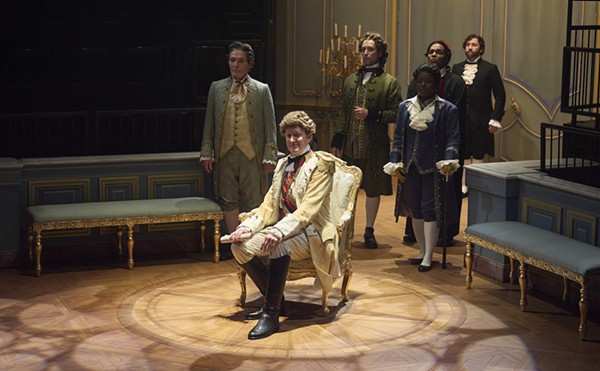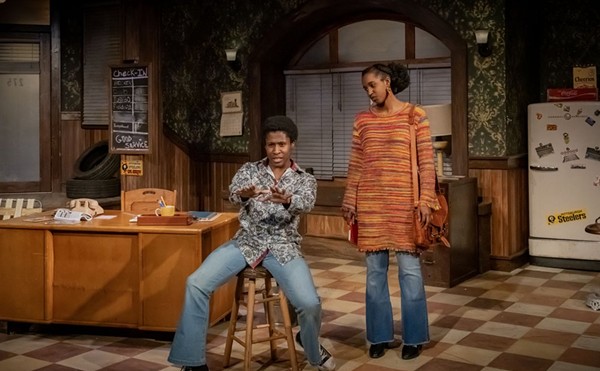Written by the fiercely provocative Caryl Churchill and directed with neurosurgical precision by Sonya Robbins, this one-hour excursion into the not-too-distant future features two drop-dead-fabulous performances and more food for thought than a month of PBS Frontline documentaries. At its core is the most basic identity mystery: What is it that accounts for who we are -- nature or nurture?
Salter is a man in his 60s whose wife died 33 years before, when their son Bernard was two years old. It turns out that Salter wasn't up to the task of raising a young child, so when Bernard was four, Dad shipped him off to an orphanage. But before he did, he decided to clone Bernard, so he could make a fresh attempt at being a good father with a new, bouncing baby we'll call Bernard 2. However, unbeknownst to Salter, the doctors took Bernard 1's DNA and spun off "a number" of extra copies of the boy, distributing them who knows where.
In the first four scenes of this five-segment piece, Salter is confronted by Bernard s 2 and 1, as they take turns exploring and raging against their strange fate. Bernard 2 is a perplexed man but reasonably well adjusted, and Salter tries to mollify him. Speaking of the other clones, Dad opines, "They should belong to you; they're made from you." But the son is tormented, wondering "if someone else is the real one." Meanwhile, Bernard 1 is aggressive and brutally honest, seething with anger at a father who never came when he yelled in his early years. And then came the cloning and abandonment: "You took a speck and threw the rest away."
Chuchill's dialogue is delivered in pointed shards of thought, with many sentences never finished as Salter and the Bernards fence with each other, revealing hidden truths as well as current tragedies. And in the final scene, Salter meets the blandly affable Michael Black, one of the Bernard clones who was raised in another family altogether. In some ways, this is the most chilling sequence: father trying to divine what makes this blood relative tick, as Michael graciously offers banal answers to Salter's probing questions.
As Salter, Joel Hammer is a haunted presence, writhing behind his hooded eyes, offering prosaic solutions ("We should sue the doctors who did this") to profound questions. Todd Krispinsky excels as all three sons, subtly changing his speech and physical affect to clearly separate the identical men. Together, they inexorably increase the tension that grips the audience until the last moment. Played on a spare, bleached, trompe l'oeil set (designed by Krispinsky), this is the most enthralling hour of theater seen in these parts in quite some time.












